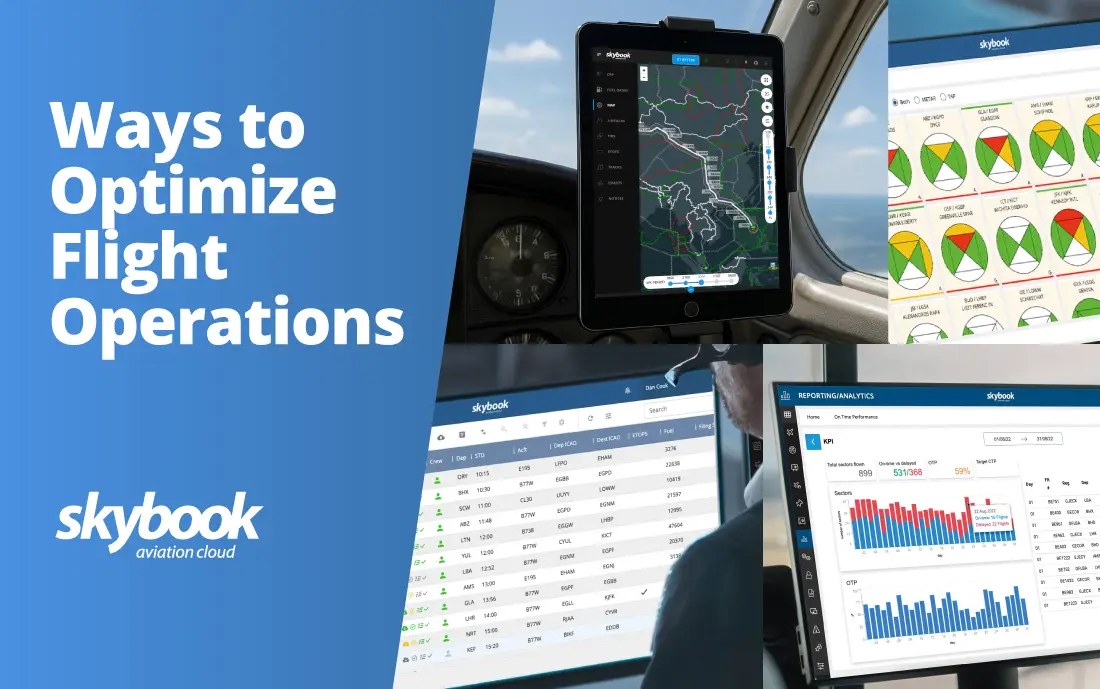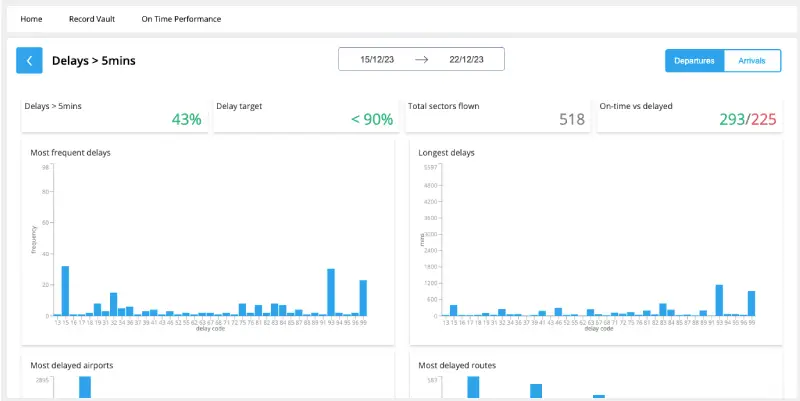
7 ways to improve flight operations
Delay codes can be a challenge for airlines and pilots, yet they play a vital role for tracking and analysing departure and arrival delays.
In this article I will outline what are considered to be some of the most common delay codes and how delay code analysis can help mitigate future challenges and improve overall operational efficiency.
(Download Product Sheet)
Delay codes are identifiers standardized by IATA and used by airlines to categorize the reasons for flight delays.
Each delay code represents a specific cause or factor contributing to the delay of a flight. These codes help airlines to analyse and report on operational performance, identify trends, and implement strategies to improve efficiency and minimize disruptions.
Common delay codes might refer to weather-related delays (WX), air traffic control delays (ATC), aircraft maintenance delays (MX), and passenger-related delays (PAX).
Here are some common delay code examples:
Delays can cause cascading effects on flight schedules, crew assignments, and passenger connections. Accurate capture of delay codes is vital for identifying the underlying causes of delays and implementing strategies to mitigate their impact on operations.
With the skybook electronic flight bag pilots can accurately capture delay codes and automatically share the data for the ground team to analyse.
Here's a video that shows how flight delays are automatically captured in the EFB solution and synced back to the ground system:
Delay codes are essential for providing airlines with insights into how they can improve their operations. However, inaccurate and slow manual processing of delay codes can skew metrics and hinder the airline's ability to identify trends and areas for improvement.
Therefore we recommend the Reporting & Analytics dashboard, which allows teams full access to delay code analysis data that is received directly from the flight crews EFB.
The Delays dashboard provides an overview of the most frequent delay codes, longest delays, most delayed routes and airports over a chosen time period.

An example of delay code analysis could be that a specific airport is having regular issues with aircraft rotations which is affecting the airlines profits. Therefore, noticing this trend could inform flight planners to adjust the scheduling of that route.
Another analysis may involve recognizing a similar pattern of aircraft defects, which may indicate safety concerns warranting further inspection.
Airlines are required to report delay code data to regulatory authorities for safety and compliance purposes. Inaccurate or incomplete reporting of delay codes can result in regulatory scrutiny and potential penalties.
This can be easily avoided by implementing a centralized data management system like skybook, ensuring that all flight data is consolidated and readily accessible to the appropriate individuals.
Overall, delay codes are essential for tracking and analysing operational delays, streamlining the process of capturing and reporting delay codes can help improve overall operational efficiency.
Learn more about skybook and how we can help improve your delay code analysis and data capture…
Get access to our latest news & skybook updates